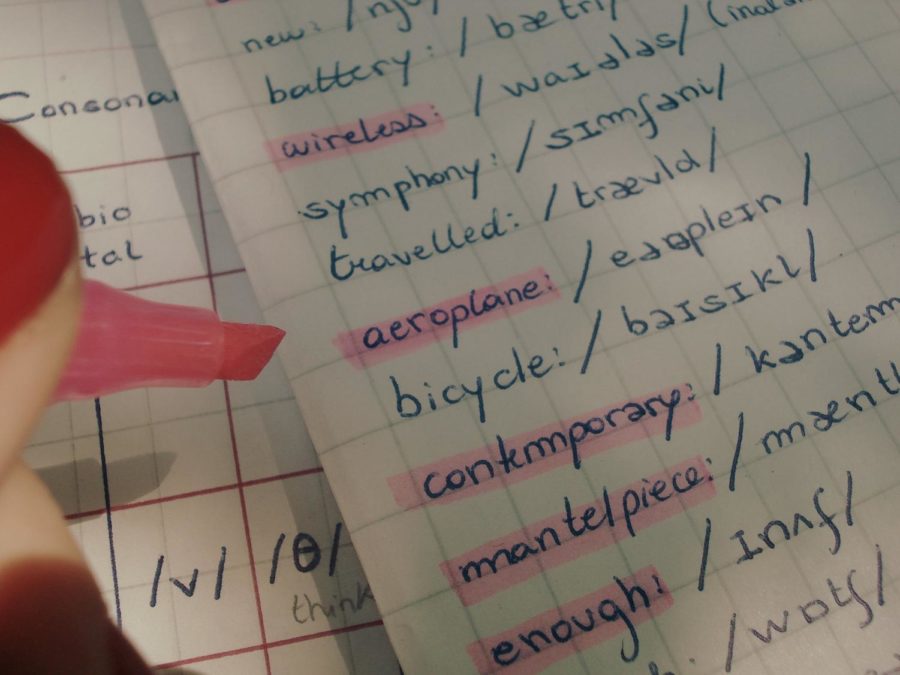Suza: My pain with the English language
December 17, 2020
She stared at me in disbelief.
“This is really bad writing. Where do you come from?” She asked after reading my English composition.
I received an F on the assignment.
But my junior high English teacher in Zimbabwe didn’t know that I was from a Kiswahili-speaking country and hadn’t studied English formally before.
“You might earn a C in your national exams but you must work very hard,” she said.
I wanted to tell her that my basic level English was from watching TV shows and movies. I also wanted to tell her that it felt overwhelming to analyze Shakespeare’s “MacBeth” and William Golding’s “Lord of the Flies.” But those words failed to come out of my mouth.
This happened many years ago, but I’m still experiencing pain with the English language.
Since coming to America, I still find myself speaking English and worrying whether people will understand me.
I continue to make a concerted effort to speak the American English, yet I still hear the question, “Where is that accent from?” That leads to the question, “Where are you from?” And even though my response is, “I am from Iowa. I am an American,” some people would proceed to ask a follow-up question, “Really, where are you from?”
Recently, my daughter and I discussed these experiences. “I don’t know why Americans expect people from other countries to speak with the American accent when many native English speakers don’t know other languages,” she said.
Wayne Turmel writes in Management-Issues that: “Since the vast majority of Americans are unilingual (speaking only what we call English), we are less quick on our feet when it comes to identifying phrases that might not be exactly what we’re familiar with, or compensating for phonetic challenges.”
The limited opportunity to learn multiple languages makes it difficult for native English speakers to understand new accents. In turn, this creates challenges for having a foreign accent and living in the United States.
Iris Goldsztajn gives examples in Cosmopolitan of the challenges of having an accent: One will find themselves being interrupted frequently, people will assume you are not American, one will be forced to change how to say things, one will have to apologize for having an accent, one might feel self-conscious.
Unfortunately, having an accent can result in discrimination.
“People with non-standard accents — such as those working in the United States with Russian or Japanese accents — face disadvantages in pay, fare worse in fundraising as entrepreneurs and are much less likely to be promoted to middle- and upper-management positions,” writes Laura Huang in Financial Times.
Unfortunately, discrimination due to one’s accent can hide from us in plain sight.
Matthew McGlone and Barbara Breckinridge write in Scientific American that: “The brain doubts a foreign accent … and while most people understand that discrimination based on visual appearance is wrong, bias against foreign speech patterns is not universally recognized as a form of prejudice.”
College professors and teaching assistants are likely to face discrimination because of their accents.
“On several occasions, I have had classmates proudly proclaim to me that from a list of options, they selected their TA or professor based on ‘how foreign their name sounded,’ in order to maximize their learning experience,” writes Elena Marchetti-Bowick in The Stanford Daily.
Unfortunately, this type of discrimination also happens at Iowa State University.
I learned recently about a student who wanted to drop a class because he couldn’t understand the professor. I figured it might have been because of the language since the professor was a nonnative English speaker.
“It is so incredibly frustrating to see our native-born students so easily dismiss a large part of their campus as strange and inaccessible,” writes Andrew Nguyen in the Iowa State Daily.
What must we do?
We must continue to work to reveal our unconscious bias preventing us from accepting others as equal.
It is not OK to judge people because of their accents since we don’t know their history and their challenges to learn our native language.
We are at our best when we strive to abide by the Golden Rule of treating others as we would want to be treated.
This includes educating ourselves about the value of racial and ethnic diversity and speaking out vigorously against prejudice and discrimination.







